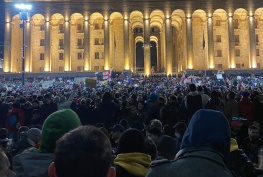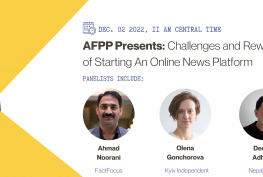Must ‘national security’ be a dark abyss or will U.S. choose another path?
By Emran Hossain
It’s the secretive whisper that has turned into a roar and it has become something part Hollywood, personal, professional and of the world of headlines.
Should we all be ever more guarded when we have a Conversation, maintain an Eagle Eye about the security of our electronic communications (e-mail and other data), fear the Mercury Rising in the clime of technology and government intrusion, know that we may be writing a Minority Report about what’s occurring and fret that, in doing so, we’ll become an Enemy of the State?
As more information seeps out daily about the U.S. government’s global surveillance campaign, waged by the National Security Agency, will Americans continue to be divided – with many like ostriches oblivious to its consequences, intended and otherwise, and others, as I see them, with ever-rising anxiety or outright fear at the possibility of an Orwellian state, something far beyond the pale of the no-good-guys world imagined in television dramas like 24, Alias or Homeland?
Shortly after the tragic Boston bombing occurred, I know some Americans who kindly asked after me and my well-being. Only after chatting some with them, however, did I grasp that their concern was deep and not just about me.
Though they lived far from the terrorism scene, they were afraid for themselves. They had chosen not to go to work and to stay at home to be safe − just in case the terror attack wasn’t confined and an incident occurred in their distant metropolis.
As recent polls indicate, their fears are shared. Half of those surveyed by Gallup two weeks after the Boston Marathon bombing believed that more terrorism attacks would occur and those polled were unsure the United States could prevent them.
At the same time, later samples of public opinion indicate a real split among Americans about the U.S. government’s efforts to deploy advanced technology, via the NSA, purportedly to combat terrorism with vast data gathering and surveillance. Significant numbers among U.S. citizens, the surveys show, fear their officials have gone too far and they worry about their nation as a police state.
Thomas Drake, once an official with the much-discussed NSA, described the Draconian powers that officials can bring to bear on U.S. citizens. In 2006, he revealed information about his agency’s mass surveillance practices, disclosures similar to those made most recently by government contractor Edward Snowden, the Guardian and Washington Post.
“I was put under strict surveillance for the next five years since blowing the whistle,” Drake said at a recent conference of American Society of News Editors in Washington. For years, he noted that he had faced the threat of 35 years in prison on 10 felony counts after his indictment for what prosecutors termed violations of the Espionage and McCarren acts.
While he fought those charges – which all were dismissed and led eventually to his pleading only to a misdemeanor count – he said federal officials tapped his home and monitored it constantly. The FBI raided his house and he said he was threatened repeatedly with imprisonment for life. He lost his high-paying government job, has seen his marriage and family life strained and now works as a clerk in a computer store.
“The government has sent the message,” said Drake, who, at the conference, was seated next to James Rosen, a Fox journalist who is at the center of a current legal battle between his news organization and the U.S. Justice Department, which has taken the rare step of labeling him in court documents as a “co-conspirator” for stories he has reported on North Korea that may involve a State Department contractor.
Kathleen Carroll, executive editor of the Associated Press, also denounced at the conference extreme actions by the U.S. government to control information and to curtail vigorous reporting by the media. Her organization, of course, has assailed the Justice Department for seeking what the news service terms unprecedented and sweeping court orders for phone records of AP reporters.
She also cited an instance where federal prison officials denied requests to release any information on an inmate’s suicide, saying to do so would violate the privacy of his family. As Carroll pointed out, however, the information requests had been filed by the dead man’s older sister.
In my own country, I have had the chilling experience of worrying how my difficult reporting on an important, highly public matter might hurt the safety and security of my family and myself. While writing about a state police force in Bangladesh whose anti-crime crackdowns have led, human rights groups and others say, to the deaths of dozens of innocents, particularly in “cross-fire” killings, I was warned that my colleagues and I – and those we knew – were in danger; our sources told us that the police agency simply might signal and we would “disappear” forever.
I personally can testify that a truly terrifying element of such threats was not knowing exactly who might be involved in harming me, my colleagues or family. As journalists, we work around the globe to grasp and to tell the hard, complex reality of our world. We can’t, as Hollywood does, create cartoon-like characters, who are clearly good and bad, out of our imagination. We deal in facts and report the truth that we can get to – and our government officials must do the same.
For the United States, in my view, that’s a fundamental and troubling aspect of its long-running war on terror, with its sweeping justifications for an array of American actions. As no less a personage than President Obama himself has urged, it’s time for the United States to rethink and reconsider its current path. The campaign against terror, launched after a terrible attack that killed more than 2,000 Americans in New York on 9/11, has run for a dozen years, two wars – one, the Iraq campaign, with weak or nonexistent justification, many say − and more. Exactly who are America’s friends and foes? How detailed and concrete can the country be in describing its enemies and the threats they pose? How much can they say as to what actions are proper and appropriate for the nation to take against them?
U.S. officials can’t go around, willy-nilly, making demons out of other nations and their people, only to turn around in a blink and embrace them as peace-loving pals. They will leave their own people in unending fear and gloom if they paint anyone and everyone around the globe all the time as threats to the nation’s safety and security. As mighty and wealth as the United States is and can be, it also clearly cannot fight ever-changing specters around the globe, 24/7, forever and alone.
And how exactly will the U.S. government describe to its friends, allies and, most importantly, its own people when it may be necessary to subject them to the same tactics it deploys against those it considers a danger? What role will the press and popular entertainment outlets, aka Hollywood, play in shaping such discussions? For Americans who shiver at or shirk tough thinking and choices, these will be trying but critical times. And the world waits anxiously, and watches.




